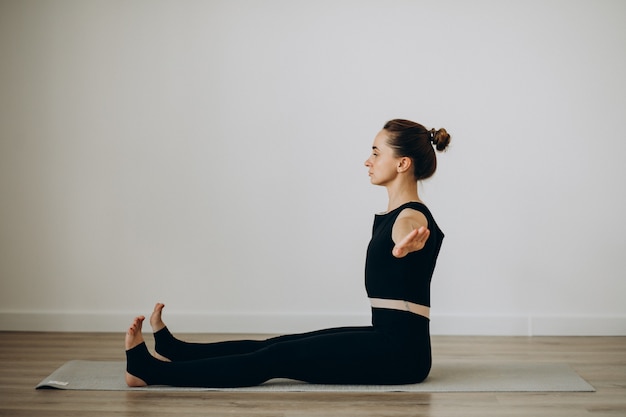
A yoga body isn’t just about flexibility; the ancient practice also boosts memory, heart, and bone health, according to Anna Magee. Brits are now spending around £790 million yearly on yoga classes and mats. While some unusual forms of yoga are cropping up, such as rage yoga or yoga on paddle-boards, science is increasingly backing its genuine health benefits.
Researchers at UCLA discovered that a three-month yoga and meditation course was more effective than traditional memory exercises in reducing age-related brain impairment. Another study found it helped breast cancer survivors sleep better.
Lucy Edge, once an advertising executive, battled deep depression by pursuing yoga instead of taking prescribed antidepressants. After a six-month break in India to learn yoga, she returned feeling happier and content. Edge has authored three books on yoga and started Yoga Meds on her website, listing over 300 clinical trials showcasing yoga’s benefits for conditions like arthritis, insomnia, and obesity.
Yoga can greatly benefit your health. UCLA research showed that adults over 55 who did yoga and meditation for 12 weeks had better memory, reduced depression, and less anxiety than those who only did memory exercises. Dr. Clare Walton from the Alzheimer’s Society emphasizes the need for more research into yoga’s benefits for brain health.
To get started, you don’t need to spend hours doing headstands. The participants in the study engaged in one hour of Kundalini yoga a week. This involves gentle yoga incorporating breathing techniques, meditation, and some chanting. Additionally, they did 20 minutes daily of Kirtan Kriya, a meditation involving chanting, hand movements, and visualizing light.
Yoga is also effective for heart health. A review published in the European Journal of Preventative Cardiology in 2014 suggested that yoga could reduce heart disease risk as much as conventional exercises like brisk walking. Stress, a major contributor to heart disease, can be mitigated through yoga, which reduces stress hormones that raise blood pressure and heart rate.
For heart health, try gentle yoga poses designed by Charlotte Watts or Restorative yoga, recommended by Anna Ashby. Restorative yoga involves supported postures held for up to 12 minutes, offering a fast-track to stress reduction.
Yoga has also proven effective for managing chronic conditions. Musculoskeletal physiotherapist Sarah Shone developed yoga classes for back pain, which were later incorporated into the Primary Care Trust’s rehab program. An impressive 87% of participants reported reduced pain. Yoga and stretching are recommended by NICE guidelines for lower back pain, and Shone advocates for training more physiotherapists to use yoga in clinical practice.
Yoga also strengthens pelvic floor muscles, crucial for preventing incontinence, and is weight-bearing, which helps increase bone density.
Beginners should consider gentle yoga styles like Hatha or Iyengar and inform their teacher about any health conditions. Those with specific issues like back pain should check with a doctor about subsidized yoga courses via exercise referral schemes.
When choosing a yoga mat, consider your height, the mat’s thickness for joint protection, and whether portability is important. Healthista recommends the Valka Yoga mat, which is eco-friendly, long-lasting, and perfect for joint comfort. Valka Yoga mats come with a one-year warranty and a 15-day money-back guarantee. They are durable, cushioned, and naturally antimicrobial, making them ideal for various yoga practices.
A yoga block can also be beneficial, especially for achieving difficult poses. Cork blocks are preferred for their stability and grip.
Whether bendy or not, yoga offers several benefits. For stress relief, try Yin or Restorative yoga. For a more energetic practice, Vinyasa Flow is ideal, while Iyengar yoga focuses on precise alignment and uses props. Anusara yoga combines alignment with upbeat movements, and Yoga Therapy is specifically tailored for healing injuries or illnesses.